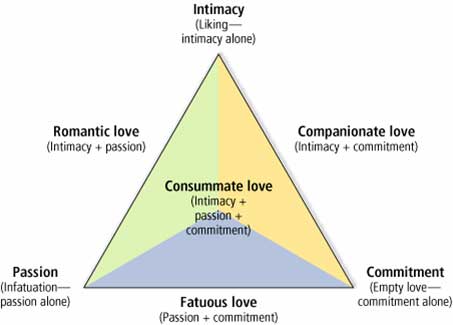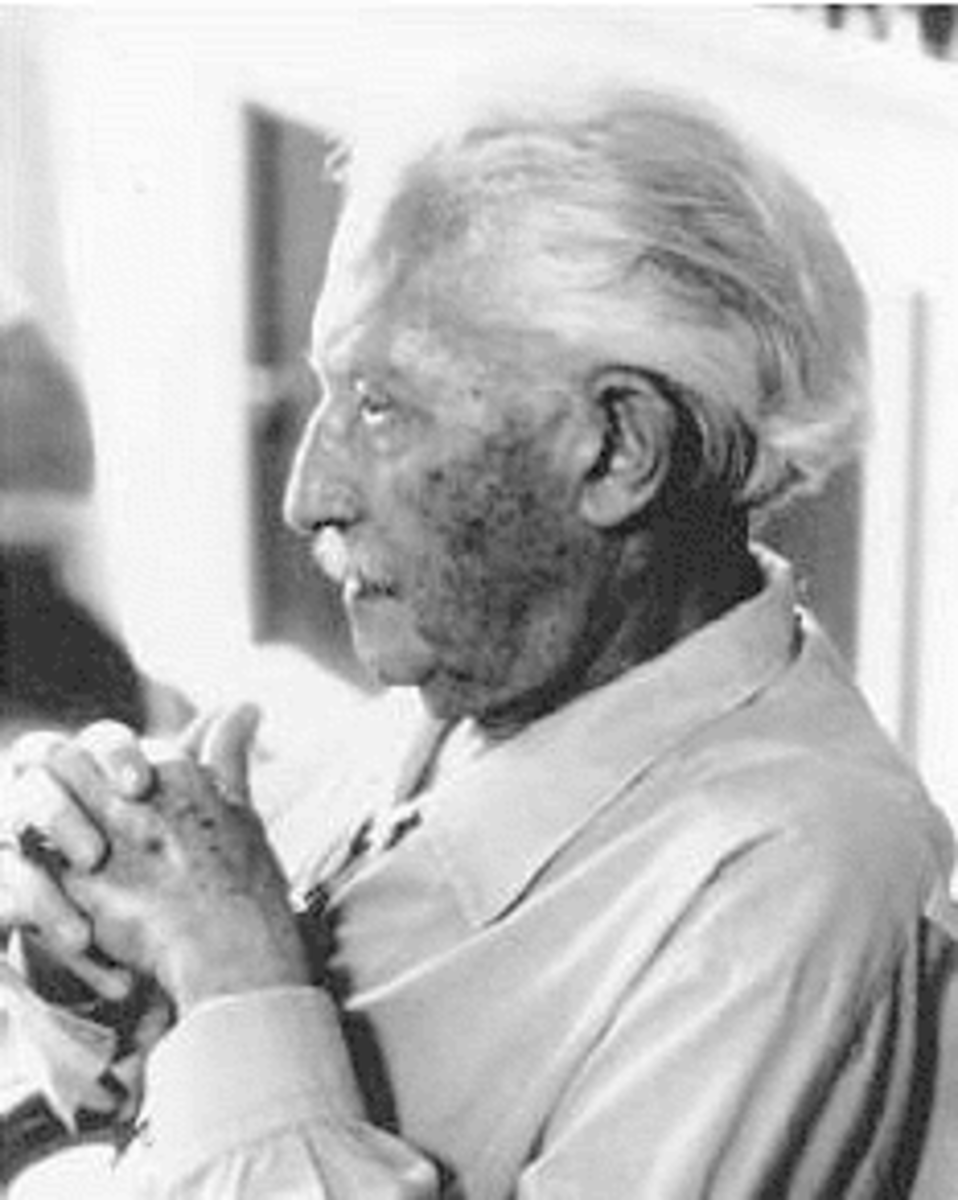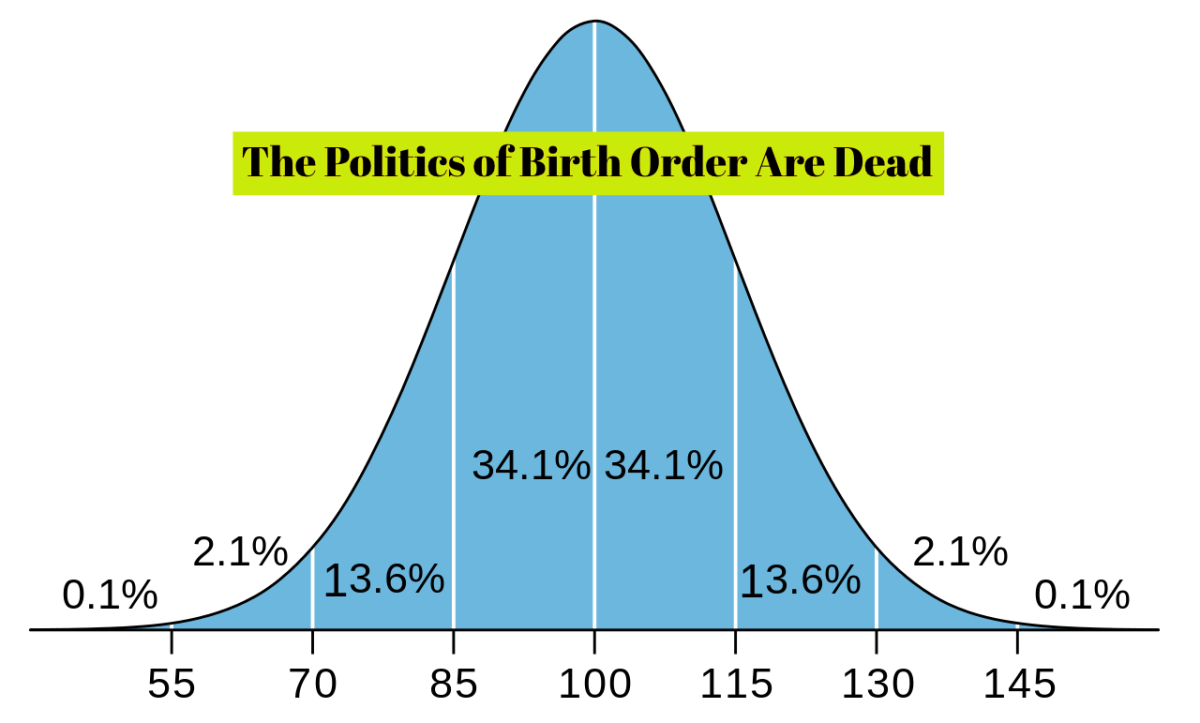The Triangular Theory of Love

Attachment Styles and Relationships
The triangular theory of love is one that suggests that love is composed of three dimensions; passion, intimacy, and commitment. Passion is the idea of intense emotion. It deals with the excitement of the relationship, the deep feeling of being in love, and sexual arousal. Commitment is the concept of being together “forever,” through thick and thin. It is a feeling of lastingness. Intimacy is a feeling of closeness, and can refer to sexual intimacy or the intimacy that comes from being vulnerable and being able to share things with your partner that you would not share with anyone else. These dimensions make the walls of the conceptual triangle, and all three are required for this triangle to retain its shape. When all three of these love needs are met, it is called consummate love. This is a relationship that is marked by high levels of passion, intimacy, and commitment, which is the type of love that is desired by most people and difficult to sustain (Baumgardner & Crothers, 2009).
When one of these dimensions are scant or altogether absent, we witness a different kind of love than the ideal. A romantic love would be one that is high in intimacy and passion, but lacking in commitment. These types of love relationships can be fleeting and short lasting, such as a fling or an affair. Companionate love exists when one has high levels of commitment and intimacy, but low levels of passion. This may be witnessed after many years of marriage, when “youthful passions fade” (Baumgardner & Crothers). Fatuous love, involving passion and commitment, and infatuated love, involving passion only, can usually be described as purely sexual relationships. The idea of love is strong and reinforced by the passion, when the relationship in itself is rather immature and underdeveloped, without the long lasting bond of friendship and the accompanying intimacy. Empty love is one in which there is only commitment, such as when a couple falls out of love but stays together out of the commitment that they made to each other. This type of relationship can often feel obligatory, as if the parties have no choice.
Attachment styles that we experience as children are highly predictive of the type of relationships that we will experience as adults. An infant that experiences a secure attachment style will most often go on to have healthier adult relationships that those that do not (2009). There is also evidence that suggests that as we move from one relationship to the next, our attachment style moves with us, building upon the attachment style we experienced in infancy (2009). It’s hard to imagine passion in a child/parent relationship, as passion has come to represent a very sexual idea. If we instead imagine voracity, or our parent’s enthusiasm to be our parent, it is easier to see how this may come into play. If we have a childhood that is low in enthusiasm from our parents, we may be inclined to be less enthusiastic, or passionate, with out lovers. The same can be said about intimacy. If we do not have intimate relationships with our parents, one that is trusting and close, it may be difficult for us to engage in intimate relationships as adults. Those who have parents that are in and out of their lives, or who abandoned them, may have fear of being abandoned or other difficulties that prevent them from maintaining a committed relationship. This does not mean that these attachment styles are set in stone. Although early childhood experiences can do a great deal to build or damage the way you relate to others in adulthood, this is not always the case. One of the wonderful parts of the human condition is our ability to adapt and overcome, and this allows us to develop healthy adult relationships even if we faced difficulties in childhood that may affect our ability to do so.
Our adult attachment styles, also highly influenced by our childhood attachments, are also closely correlated to the way that we experience love. Adult attachment revolves around two main principles, anxiety and avoidance (2009). Where we fall on the spectrum of these principles determines our attachment style, and has a great deal to do with determining what type of relationships we experience. Someone who has low levels of avoidance and anxiety would have a secure attachment, and are comfortable and confident with themselves and their relationship. Those who experience secure attachment are the most likely to find themselves in a consummate love relationship. A preoccupied attachment would be one that is low on avoidance because they desperately crave the attention and intimacy that comes with a relationship, but have high anxiety resulting from low self esteem (2009). Those experiencing preoccupied attachment may have commitment issues, as their anxiety about being abandoned may lead them to prematurely leave the relationship to avoid being left. This person may be more likely to develop a romantic love relationship. Fearful avoidant attachment is an attachment theory describing an individual that is high in anxiety and avoidance. Their fears of rejection and humiliation may lead them to avoid intimacy, and feeling like they can’t depend on anyone may lead them to avoid commitment. Being human, they may still become wrapped up in passion or sexual desire and experience a infatuated love relationship. Dismissing avoidant attachment is one of high avoidance and low anxiety. These people can be viewed as shallow, self absorbed, with very few meaningful relationships with other people. “They view others as essentially irrelevant” (2009). This person may disregard others entirely, viewing relationships as purely sexual to meet sexual needs or not partaking in them at all.
The triangular theory of love suggests that a full and satisfying relationship is composed of three dimensions, all of which must be met in order to experience a true, consummate love. Our experiences and attachment styles that we have been exposed to and create for ourselves in adulthood may dictate our ability to find that love. There is nothing that says it has to, as we are able to change our attachment style and are able to overcome damage that may have been done from the attachment styles we experienced as children. If one is unhappy in a current relationship, or unhappy with the way they conduct themselves in relationships in general, understanding the necessary components of love, as well as your attachment style, are the first step towards building back the three walls of the triangle, and participating in a meaningful, intimate, passionate, and committed relationship.
Reference
Baumgardner, S. R., & Crothers, M.K. (2009). Positive Psychology.



